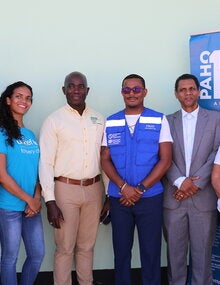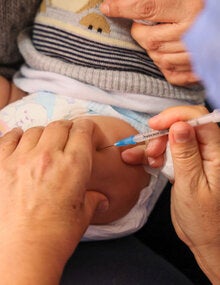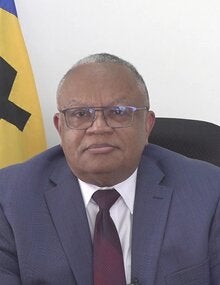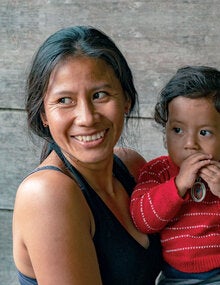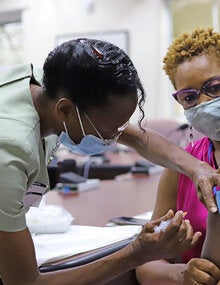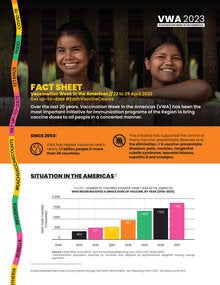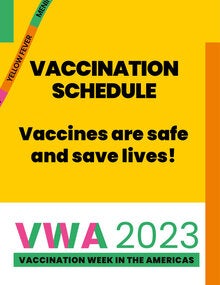Vaccination Week in the Americas (VWA)
Current Campaign: Vaccination Week in the Americas 2025
Vaccination Week in the Americas (VWA) is a regional initiative that aims to promote equity and access to vaccination in all countries in the Region of the Americas. At the heart of this initiative are countries' relentless efforts to reach vulnerable population groups with little or no access to regular health services, such as those living in urban peripheries, rural or border areas, and indigenous communities, with vaccination.
The history of VWA dates to a 2002 proposal by the Ministers of Health of the Andean Region, following the last endemic measles outbreak in the Americas. This proposal called for a coordinated vaccination effort across national borders to reach vulnerable populations, put an end to the outbreak, and prevent future outbreaks. Today, the Region of the Americas is facing new measles outbreaks, after having been declared free of this disease in 2016.
Every year as part of VWA, more than 40 countries and territories in the Americas come together to raise awareness on the importance of immunization and vaccinate their populations, making a special effort to reach people who may not have regular access to health services, including indigenous peoples, migrants, border populations, and people living in urban fringes. VWA has been a key driver of immunization in the Americas, resulting in more than 1 billion people being vaccinated against a range of diseases since 2002.
This page contains planning materials from the current campaign, as well as materials and other information from past years.
Vaccination Week Through the Years


